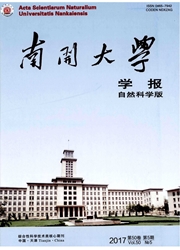

 中文摘要:
中文摘要:
粒细胞集落刺激因子(G—CSF)能够将骨髓干细胞动员到缺血组织参与组织修复,因而具有治疗心肌梗死的潜力.但是目前国际上对该疗法的效果尚存在争议.为了研究心肌梗死急性期内注射G—CSF对心肌纤维化及心脏功能的影响,将SD大鼠冠状动脉左前降支结扎3h后,皮下注射G—CSF(50μg/kg/d,共5d)或等量生理盐水.结果显示G—CSF注射5d后,外周血白细胞数量显著增加.3个月后,G—CSF注射显著增加了梗死范围和左心室胶原含量,损害了心脏功能.由以上可见,心肌梗死急性期内给予G—CSF治疗促进了心肌组织纤维化,并导致了心室扩张和心脏功能恶化.
 英文摘要:
英文摘要:
Controversy exists regarding the effects of granulocyte colony-stimulating factor (G-CSF) on post-infarction remodeling and functional recovery. In this study, a rat model of myocardial infarction (MI) was produced by permanent ligation of left anterior descending coronary artery. Three hours after MI, rats were randomized to receive subcutaneous G-CSF (50μg/kg/d for 5 consecutive days, n= 16) or saline (n= 10). G-CSF injection significantly increased circulating white blood cells 5 days after MI. At 3 months, echocardiographic and hemodynamic examination revealed that the G-CSF treatment enhanced left ventricular (LV) enlargement and dysfunction. Histological analysis showed that the extent of myocardial fibrosis and infarct size were larger in the G-CSF group than in saline group. In conclusion, subcu- taneous injection of G-CSF immediately after acute myocardial infarction facilitated ventricular remodeling and deteriorated cardiac function in a rat model.
 同期刊论文项目
同期刊论文项目
 同项目期刊论文
同项目期刊论文
 G-CSF exacerbates cardiac fibrosis after myocardial infarction in a rat model of permanent occlusion
G-CSF exacerbates cardiac fibrosis after myocardial infarction in a rat model of permanent occlusion Mobilization of mesenchymal stem cells by granulocyte colony-stimulating factor in rats with acute m
Mobilization of mesenchymal stem cells by granulocyte colony-stimulating factor in rats with acute m 期刊信息
期刊信息
